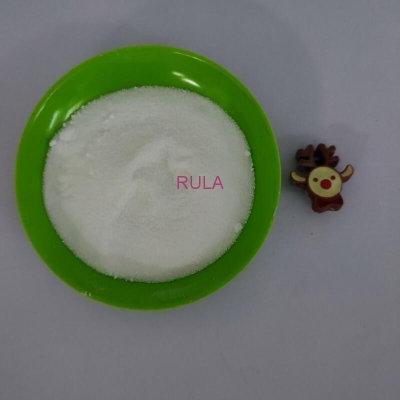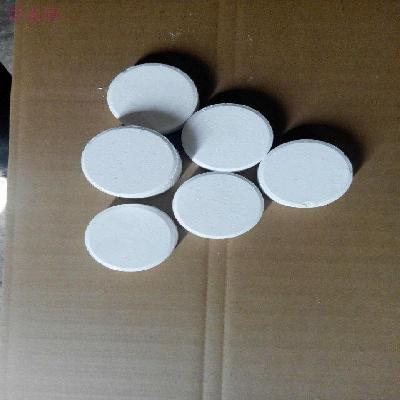-
Categories
-
Pharmaceutical Intermediates
-
Active Pharmaceutical Ingredients
-
Food Additives
- Industrial Coatings
- Agrochemicals
- Dyes and Pigments
- Surfactant
- Flavors and Fragrances
- Chemical Reagents
- Catalyst and Auxiliary
- Natural Products
- Inorganic Chemistry
-
Organic Chemistry
-
Biochemical Engineering
- Analytical Chemistry
- Cosmetic Ingredient
-
Pharmaceutical Intermediates
Promotion
ECHEMI Mall
Wholesale
Weekly Price
Exhibition
News
-
Trade Service
Written | Edited by Wang Cong | Typeset by Wang Duoyu | Waterborne New Coronary Pneumonia (COVID-19) is caused by a new type of coronavirus (SARS-CoV-2) infection, although its specific pathogenesis is still largely unknown Exploration, but it is believed that the severity of new coronary pneumonia is caused by an excessive immune response caused by inflammatory cell infiltration and increased production of inflammatory cytokines/chemokines
.
In fact, recent studies have also confirmed that the number of peripheral blood lymphocytes in patients with new coronary pneumonia is reduced, and the level of serum pro-inflammatory cytokines is increased
.
At present, there is still a lack of specific drugs for new coronary pneumonia.
Therefore, during the new crown pandemic, there is an urgent need for effective treatment strategies for the overactive inflammatory response of patients with new crowns
.
Mesenchymal stem cells (MSCs) have the unique ability to regulate immunity and tissue repair, which makes them an attractive cell type for the treatment of acute/chronic and severe immune diseases
.
Moreover, a previous study by Zhao Chunhua's team showed that mesenchymal stem cells do not express the ACE2 protein, so the new coronavirus is difficult to infect
.
So, can mesenchymal stem cells relieve acute pulmonary edema and improve the prognosis of patients with new coronary pneumonia by regulating the immune response, reducing the degree of lung tissue damage and promoting its repair? On October 26, 2021, the Zhao Chunhua team of the Chinese Academy of Medical Sciences/Peking Union Medical College and the Jin Ronghua team of You'an Hospital Affiliated to Capital Medical University and Yan-Qing Ma of the Versiti Institute of Hematology in the United States, etc.
, published the title: Mesenchymal in the journal Cell Research Stem cell treatment improves outcome of COVID-19 patients via multiple immunomodulatory mechanisms
.
The results of this phase 2 clinical trial further confirmed that mesenchymal stem cell therapy helps the prognosis of patients with new coronary pneumonia.
The research team also used single-cell RNA sequencing to further reveal the potential mechanism of mesenchymal stem cells for the treatment of new crowns.
Mesenchymal stem cells regulate Immune microenvironment and promote tissue repair to improve the clinical treatment efficacy of patients with new coronary pneumonia
.
In March 2020, Zhao Chunhua’s team published a paper in the journal Aging and Disease, conducted clinical trials in 7 patients with new coronary pneumonia, and found that mesenchymal stem cell transplantation therapy can quickly and significantly improve the prognosis of critically ill and critically ill patients, and effectively avoid cytokines With no obvious side effects, it provides new ideas for the clinical treatment of patients with new coronary pneumonia
.
The above studies have shown that mesenchymal stem cells can improve the prognosis of patients with new coronary pneumonia, but the specific mechanism is still unclear
.
The Zhao Chunhua team conducted a randomized, single-blind, placebo-controlled phase 2 clinical trial with 29 people in the treatment group and placebo control group to further verify the previous findings and explore potential treatment mechanisms
.
Compared with patients receiving placebo, patients with new coronary pneumonia who received umbilical cord-derived mesenchymal stem cell infusion treatment had a shorter hospital stay and a shorter time for symptom relief
.
According to chest CT, severe and critically ill patients with new coronary disease who received mesenchymal stem cell infusion treatment showed improvement in symptoms on the 7th and 21st days
.
In addition, patients with new coronavirus who received mesenchymal stem cell infusion treatment had fewer adverse events.
The treatment reduced the levels of C-reactive protein, pro-inflammatory cytokines, and neutrophil extracellular trap (NET), and promoted the specificity of the new coronavirus.
Maintenance of antibodies
.
In order to explore how mesenchymal stem cells regulate the immune system, the research team performed single-cell RNA sequencing analysis on the peripheral blood of patients after treatment, and identified a new subpopulation of VNN2+ hematopoietic stem/progenitor-like cells that express CSF3R and PREPRE , They are mobilized after infusion of mesenchymal stem cells
.
The genes encoding chemokines-CX3CR1 and L-selectin are upregulated in various immune cells
.
Mesenchymal stem cell infusion therapy also regulates B cell subpopulations and increases the expression of the costimulatory molecule CD28 in T cells in vivo and in vitro
.
In addition, experiments in mice also confirmed that mesenchymal stem cells inhibit the release of neutrophil extracellular trap (NET) and reduce the formation of venous thrombosis by up-regulating kindlin-3 signaling
.
In general, mesenchymal stem cells coordinate immune regulatory functions by mobilizing immune cells to kill viruses and inhibiting excessive activation of immune cells, so as to restore the homeostasis of the immune microenvironment and promote the recovery of the immune system of patients with COVID-19
.
These findings confirm the positive effects of mesenchymal stem cells in the treatment of new coronary pneumonia, and emphasize the role of mesenchymal stem cells in improving the prognosis of patients with new coronary pneumonia by maintaining immune homeostasis
.
Link to the paper: http:// open reprint, welcome to forward to Moments of Friends and WeChat groups
.
In fact, recent studies have also confirmed that the number of peripheral blood lymphocytes in patients with new coronary pneumonia is reduced, and the level of serum pro-inflammatory cytokines is increased
.
At present, there is still a lack of specific drugs for new coronary pneumonia.
Therefore, during the new crown pandemic, there is an urgent need for effective treatment strategies for the overactive inflammatory response of patients with new crowns
.
Mesenchymal stem cells (MSCs) have the unique ability to regulate immunity and tissue repair, which makes them an attractive cell type for the treatment of acute/chronic and severe immune diseases
.
Moreover, a previous study by Zhao Chunhua's team showed that mesenchymal stem cells do not express the ACE2 protein, so the new coronavirus is difficult to infect
.
So, can mesenchymal stem cells relieve acute pulmonary edema and improve the prognosis of patients with new coronary pneumonia by regulating the immune response, reducing the degree of lung tissue damage and promoting its repair? On October 26, 2021, the Zhao Chunhua team of the Chinese Academy of Medical Sciences/Peking Union Medical College and the Jin Ronghua team of You'an Hospital Affiliated to Capital Medical University and Yan-Qing Ma of the Versiti Institute of Hematology in the United States, etc.
, published the title: Mesenchymal in the journal Cell Research Stem cell treatment improves outcome of COVID-19 patients via multiple immunomodulatory mechanisms
.
The results of this phase 2 clinical trial further confirmed that mesenchymal stem cell therapy helps the prognosis of patients with new coronary pneumonia.
The research team also used single-cell RNA sequencing to further reveal the potential mechanism of mesenchymal stem cells for the treatment of new crowns.
Mesenchymal stem cells regulate Immune microenvironment and promote tissue repair to improve the clinical treatment efficacy of patients with new coronary pneumonia
.
In March 2020, Zhao Chunhua’s team published a paper in the journal Aging and Disease, conducted clinical trials in 7 patients with new coronary pneumonia, and found that mesenchymal stem cell transplantation therapy can quickly and significantly improve the prognosis of critically ill and critically ill patients, and effectively avoid cytokines With no obvious side effects, it provides new ideas for the clinical treatment of patients with new coronary pneumonia
.
The above studies have shown that mesenchymal stem cells can improve the prognosis of patients with new coronary pneumonia, but the specific mechanism is still unclear
.
The Zhao Chunhua team conducted a randomized, single-blind, placebo-controlled phase 2 clinical trial with 29 people in the treatment group and placebo control group to further verify the previous findings and explore potential treatment mechanisms
.
Compared with patients receiving placebo, patients with new coronary pneumonia who received umbilical cord-derived mesenchymal stem cell infusion treatment had a shorter hospital stay and a shorter time for symptom relief
.
According to chest CT, severe and critically ill patients with new coronary disease who received mesenchymal stem cell infusion treatment showed improvement in symptoms on the 7th and 21st days
.
In addition, patients with new coronavirus who received mesenchymal stem cell infusion treatment had fewer adverse events.
The treatment reduced the levels of C-reactive protein, pro-inflammatory cytokines, and neutrophil extracellular trap (NET), and promoted the specificity of the new coronavirus.
Maintenance of antibodies
.
In order to explore how mesenchymal stem cells regulate the immune system, the research team performed single-cell RNA sequencing analysis on the peripheral blood of patients after treatment, and identified a new subpopulation of VNN2+ hematopoietic stem/progenitor-like cells that express CSF3R and PREPRE , They are mobilized after infusion of mesenchymal stem cells
.
The genes encoding chemokines-CX3CR1 and L-selectin are upregulated in various immune cells
.
Mesenchymal stem cell infusion therapy also regulates B cell subpopulations and increases the expression of the costimulatory molecule CD28 in T cells in vivo and in vitro
.
In addition, experiments in mice also confirmed that mesenchymal stem cells inhibit the release of neutrophil extracellular trap (NET) and reduce the formation of venous thrombosis by up-regulating kindlin-3 signaling
.
In general, mesenchymal stem cells coordinate immune regulatory functions by mobilizing immune cells to kill viruses and inhibiting excessive activation of immune cells, so as to restore the homeostasis of the immune microenvironment and promote the recovery of the immune system of patients with COVID-19
.
These findings confirm the positive effects of mesenchymal stem cells in the treatment of new coronary pneumonia, and emphasize the role of mesenchymal stem cells in improving the prognosis of patients with new coronary pneumonia by maintaining immune homeostasis
.
Link to the paper: http:// open reprint, welcome to forward to Moments of Friends and WeChat groups







